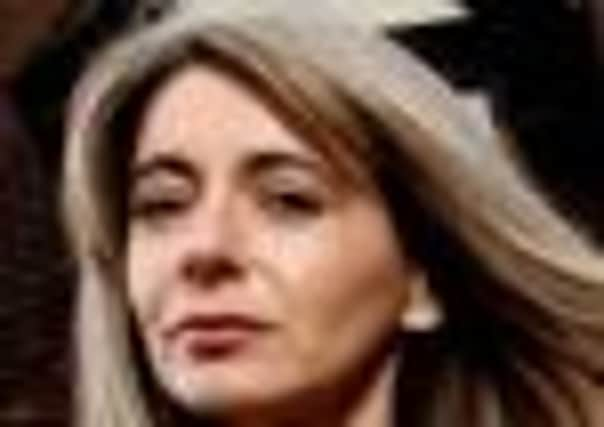Scotland on Sunday campaign: Evelyn Glennie ‘wouldn’t get music lessons today’


A study conducted by the University of Strathclyde suggests that young children with additional support needs (ASN) often miss out on the chance to learn a musical instrument.
The report, by Dr Lio Moscardini, which gathered information from 21 primary schools across Scotland, says that pupils who were identified as having ASN are significantly under-represented in music tuition in Scottish primary schools thanks to the criteria used to select the children who receive instrumental music lessons.
Advertisement
Hide AdAdvertisement
Hide Ad“Many renowned performers would fail by such criteria,” said Moscardini. “For example, Django Reinhardt, Evelyn Glennie, Tommy Iommi, Ian Dury and Stevie Wonder to name a few.”
Glennie, who has been profoundly deaf since the age of 12, was a recipient of free music lessons as a child at school in Aberdeenshire. These lessons led to her career as one of the world’s most famous percussionists, and she is one of a number of high-profile musicians backing Scotland on Sunday’s Let the Children Play, which is campaigning for free instrumental music tuition in schools across Scotland.
The current postcode lottery in Scotland means that 24 out of 32 local authorities in the country now charge between £95 and £340 per year for instrumental music lessons, meaning that many children from deprived backgrounds miss out on learning an instrument.
Moscardini and colleagues gathered data from 21 Scottish primary schools with a total population of 5,122 pupils, of whom 1,157 – around one in four – were identified as having ASN. However, only 45 out of the 323 pupils who received instrumental instruction – equivalent to around one in seven – had ASN.
Moscardini added: “One of the most striking findings from the study was the under-representation of particular groups of children. It is notable that from a total school population of 5,122 pupils, there was not one child with a physical disability receiving instrumental instruction.”
He continued: “The dyslexia category featured disproportionately. Twenty-eight of the 45 children with ASN were identified within this category.
“This represents 62.2 per cent of the pupils with ASN receiving instrumental instruction, yet recent Scottish Government statistics show that children with dyslexia in primary schools represent only 7.9 per cent of pupils who have ASN.”
Moscardini, of the university’s School of Education, added: “There is a parallel with the Paralympics. The Paralympians did not set out to run alongside Usain Bolt – rather they want to be successful in their own right. We can argue the same with instrumental instruction – it’s about what you can achieve as an individual.”
Advertisement
Hide AdAdvertisement
Hide AdA Scottish Government spokesperson said: “Curriculum for Excellence provides the broad framework for all children and young people to learn and achieve by delivering an education which meets their individual needs – including subjects such as music and the expressive arts.
“Music is a regular part of learning in our schools, encouraging creativity and helping pupils develop.
“We want all our children and young people to have this opportunity.”